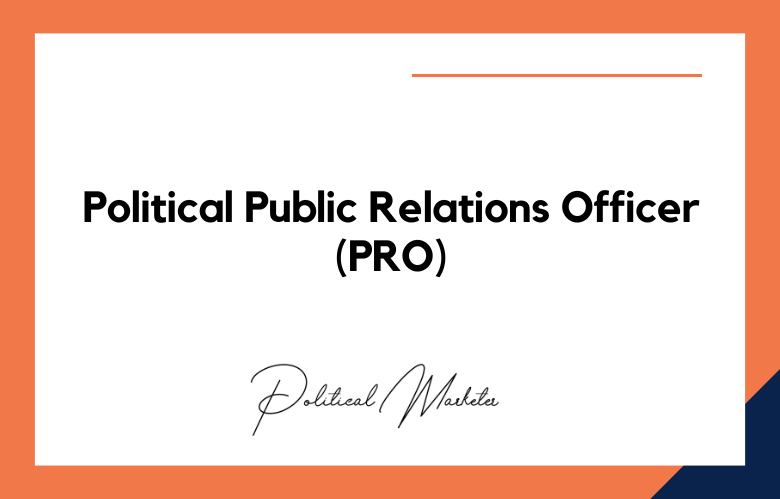Artificial Intelligence has emerged as a powerful technology poised to transform every aspect of our lives. From intelligent virtual assistants to autonomous vehicles, AI is steadily moving towards becoming an integral part of our daily routines.
However, the development and deployment of AI have their share of challenges. One significant challenge is shaping the public’s perception of AI, often influenced by the media. I will explore media ideology and its impact on public perception of AI.
The Role of Media in Shaping Public Perception of Artificial Intelligence
The role of media in shaping public perception of artificial intelligence must be supported. In recent years, there has been a tremendous increase in the coverage of AI in different media outlets, including newsprint, social media, and broadcast media.
Despite its transformative impact on different aspects of human life, AI remains a highly ambiguous and confusing concept for many people. This is because of the many conflicting and unclear information and messages about AI disseminated through the media.
Media is crucial in informing society about AI by breaking down complex technical concepts into understandable and relatable language.
For instance, the media can use real-life examples to illustrate how AI is already used in daily life, including healthcare, finance, and education. In this way, people will understand how AI benefits society, thereby reducing the skepticism and fear associated with the technology.
From Hollywood to Headlines: How Media Shapes Ideas on Artificial Intelligence
The idea of Artificial Intelligence (AI) has been around for decades, and yet, only recently has it become a topic of widespread interest and concern.
The media, in particular, has significantly shaped people’s ideas and perceptions of AI. From Hollywood movies to sensational news headlines, media coverage has portrayed AI as a potential savior and a looming threat.
Hollywood has depicted AI in various ways, from the loveable robot of “Wall-E” to the sinister and deadly machines of “Terminator.”
These portrayals have helped to shape public opinion on the technology, with some people embracing the idea of a world filled with intelligent machines and others fearing a future where AI has taken over.
The news media has also played a significant role in shaping perceptions of AI. Headlines about the latest breakthroughs in AI research or the potential dangers of AI have been splashed across newspapers and websites worldwide.
While some of these stories are based on sound science, others are sensational and misleading, causing unnecessary fear and anxiety.
Perception Manipulation: How Media Ideology Influences Our View of AI
Perception manipulation is a topic that is becoming increasingly relevant in our world today, particularly when it comes to the way we view artificial intelligence (AI).
With the constant influx of news articles, movies, and television shows that depict AI in various lights, it’s no surprise that many people have formed strong opinions on the topic. However, what is interesting to consider is that much of our perception of AI is shaped by the media ideology we consume.
It’s essential to start by acknowledging the significant role that the media plays in shaping how we view AI.
From news articles that highlight the latest breakthroughs in AI technology to movies like “Her” and “Ex Machina” that portray AI as loving and manipulative entities, these sources of information can significantly influence how we perceive this technology. Media outlets often present their perspectives on AI instead of accurately representing it.
Unveiling the Media Bias: Impact on Public Opinion about Artificial Intelligence
Artificial Intelligence (AI) has emerged as one of the most transformative technologies of our time, bringing about significant changes in various fields such as medicine, finance, and transportation.
However, how AI is represented in the media significantly impacts public perception of the technology. Recently, a growing concern has emerged regarding media bias and its impact on public opinion about AI.
Media bias is the selective presentation of information by journalists, news outlets, and other media platforms to shape public perception of an issue or topic.
The biased presentation of AI-related news can influence public opinion, particularly considering that most individuals rely heavily on the media for information.
The Impact of Media Ideology on Public Perception of Artificial Intelligence
Artificial Intelligence (AI) is no longer a futuristic concept or just seen in sci-fi movies. Its presence is visible across industries, from healthcare to transportation and education to finance.
However, the perception and understanding of AI amongst the general public are shaped to a vast extent by media ideology. I will explore how media ideology shapes public perception of artificial intelligence.
Media Coverage Shapes Perceptions:
The media plays a crucial role in shaping public opinion regarding technology. As the primary source of information for most people, media outlets play a significant role in disseminating information about AI.
However, media coverage can be skewed based on the media outlets’ or individual journalists’ political and economic interests. As a result, the public perception of AI can be influenced by media ideology.
For instance, media outlets can use AI as a scapegoat for job losses or present AI as a panacea for all social ills without portraying the potential adverse effects of AI development.
Representation of AI in Pop Culture:
Another significant factor in shaping the public’s perception of AI is its representation in popular culture. Books, television, and Hollywood movies portray AI in various ways, from benevolent to malevolent.
Pop culture can create fear over a future where robots will replace human workers or an AI that could take over the world. As a result, consumers can be apprehensive about AI’s development when exposed to dystopian representations of AI.
AI and its Influence on Socio-Economy:
AI also has potential impacts on the socio-economic landscape. While AI has the potential to create new jobs and revolutionize industries, it can also lead to job displacement and exacerbate income inequality.
The media can exacerbate these concerns by creating damaging narratives, undermining public confidence in AI’s benefits. For instance, portraying robots in the workplace as job killers can create unnecessary apprehension in the public.
Education is Essential:
One way to counter the negative impact of media ideology on public perception of AI is through education. Education enables individuals to make informed decisions and understand AI’s nuances, benefits, and potential impact.
With a deeper understanding, the public can differentiate between hype and reality concerning AI’s potential and challenges.
Government, industry leaders, and other stakeholders can play an essential role in this effort by creating educational programs that can provide the public or the workforce with a basic understanding of AI.
Conclusion:
Artificial intelligence can potentially transform the world positively, but its development and deployment come with challenges. One of the most significant challenges has been shaping the public’s perception of AI, often influenced by media ideology.
Media outlets play a significant role in disseminating information about AI, and their coverage of AI can shape public opinion.
Governments, industry leaders, and other stakeholders must take the initiative to educate the public by addressing their concerns and dispelling myths surrounding the technology.
By providing accurate information and effective ways to learn about AI, individuals can develop an understanding of AI’s nuances, benefits, and potential impact.
Creating a discourse that fosters a positive perception of AI while acknowledging its potential challenges is essential. Ultimately, the public’s accurate understanding of AI will help ensure this technology can contribute positively to society.
Call: +91 9848321284
Email: [email protected]
Frequently Asked Questions (FAQs)
What is the relationship between media ideology and public perception of AI?
Media ideology—rooted in the values and biases of media institutions—shapes how the public perceives artificial intelligence, influencing beliefs, fears, and expectations.
How does media framing affect perceptions of AI?
Media framing emphasizes specific aspects of AI—such as risk, innovation, or control—guiding public interpretation and emotional response.
Why is it important to analyze how media portrays AI?
Media portrayals influence trust in AI, drive public discourse, and affect political decisions, making their analysis vital for informed policy and societal readiness.
What are common ideological narratives about AI in media?
Narratives often depict AI as either a revolutionary solution or a dystopian threat, reinforcing ideological positions through selective storytelling.
How do political agendas shape AI media coverage?
News outlets often align AI narratives with their political views, influencing how audiences perceive AI’s ethical, economic, and social implications.
Do sensationalist headlines distort public understanding of AI?
Yes. Exaggerated headlines can inflate fears or expectations, misrepresenting AI’s actual capabilities and risks.
How do entertainment media portray AI differently than news outlets?
Entertainment often dramatizes AI in speculative ways, while news media highlight real-world use cases, ethical debates, and policy issues.
Can media literacy counter biased AI narratives?
Yes. Media literacy helps individuals recognize bias, identify framing techniques, and develop a more nuanced understanding of AI developments.
Why does emotional framing matter in AI-related stories?
Emotionally charged reporting can skew perception, making audiences fearful or overly optimistic regardless of factual accuracy.
How do visuals impact AI media narratives?
Images—such as robots or glowing brains—evoke specific reactions, reinforcing ideological messages about AI’s potential or dangers.
Does media exposure affect public attitudes toward AI?
Yes. Repeated exposure to negative or alarmist coverage can shape skeptical or fearful attitudes, while balanced reporting builds informed perspectives.
How does cultural context influence media narratives about AI?
Cultural values guide how media in different regions frame AI—some prioritize innovation, while others emphasize caution and control.
Do tech companies influence AI media coverage?
Yes. Through sponsorships, PR campaigns, and partnerships, tech firms often shape narratives to highlight benefits and downplay risks.
Is AI misinformation common in mainstream media?
Yes. Inaccurate claims and misleading interpretations are widespread, often due to a lack of technical understanding or sensationalism.
How can media narratives influence AI policymaking?
Public opinion, shaped by media, can pressure lawmakers to support or oppose AI legislation, often based on fear or optimism rather than facts.
What is confirmation bias in AI media consumption?
People tend to seek out and trust content that supports their existing beliefs about AI, reinforcing polarization and limiting exposure to diverse viewpoints.
How should political communicators address media-driven AI perceptions?
They should deliver transparent, balanced messaging that clarifies AI’s purpose, limitations, and benefits to the public.
Has AI been politicized through media narratives?
Yes. Media sometimes frame AI as a political weapon—such as a surveillance tool or job killer—depending on the outlet’s ideological stance.
What can educators do to counter media distortion of AI?
They should integrate critical media analysis into AI education, helping students assess both technical and societal implications objectively.
What does the future hold for media ideologies and AI perception?
Future narratives will likely become more polarized or commercialized, especially as AI expands into daily life and political discourse.









